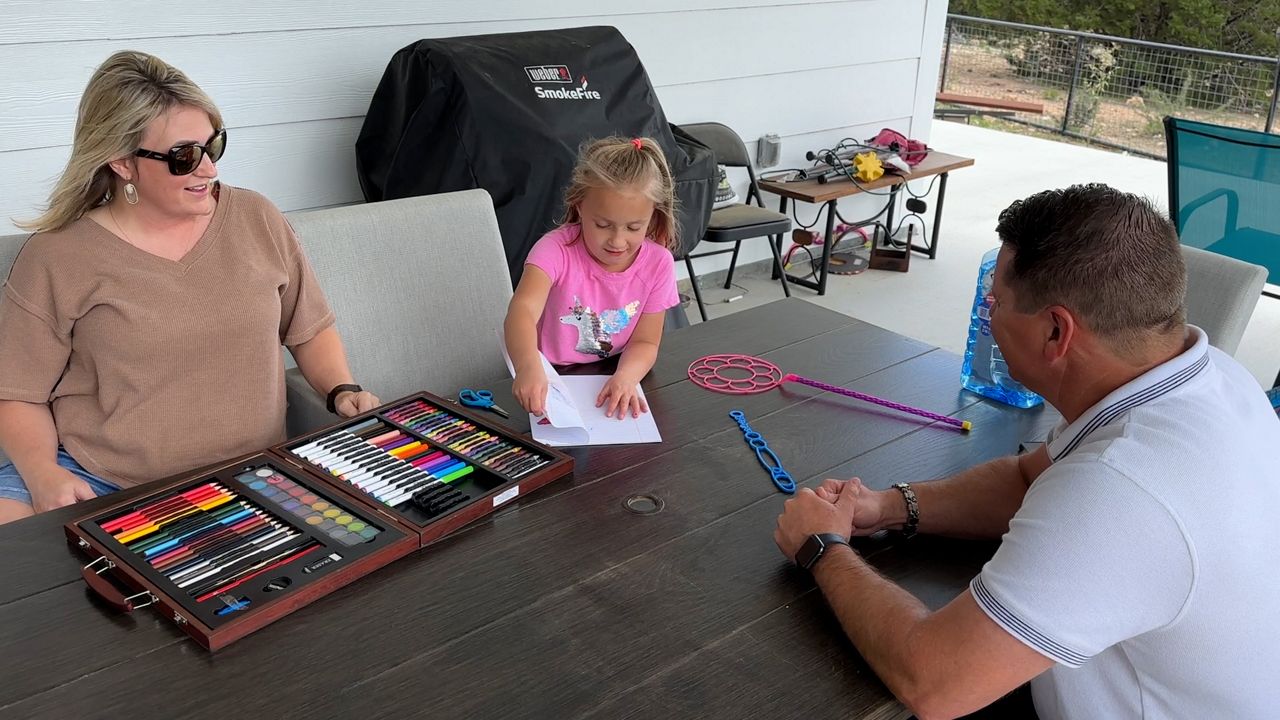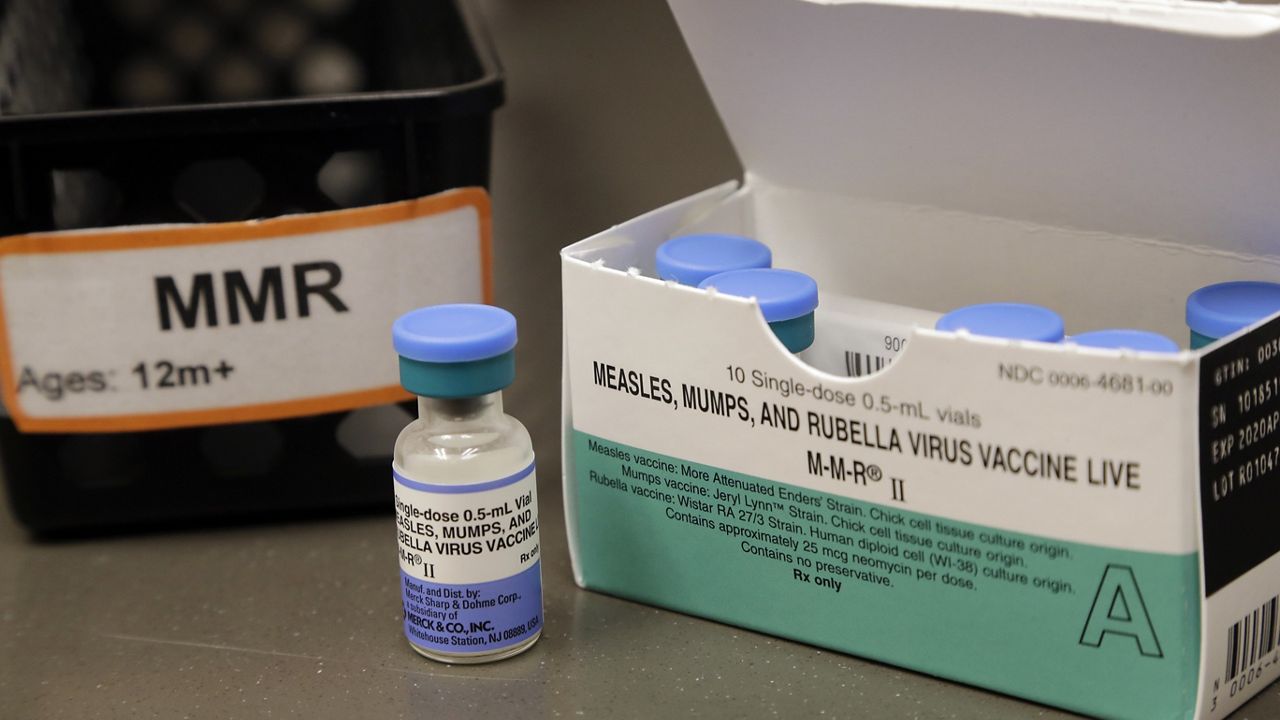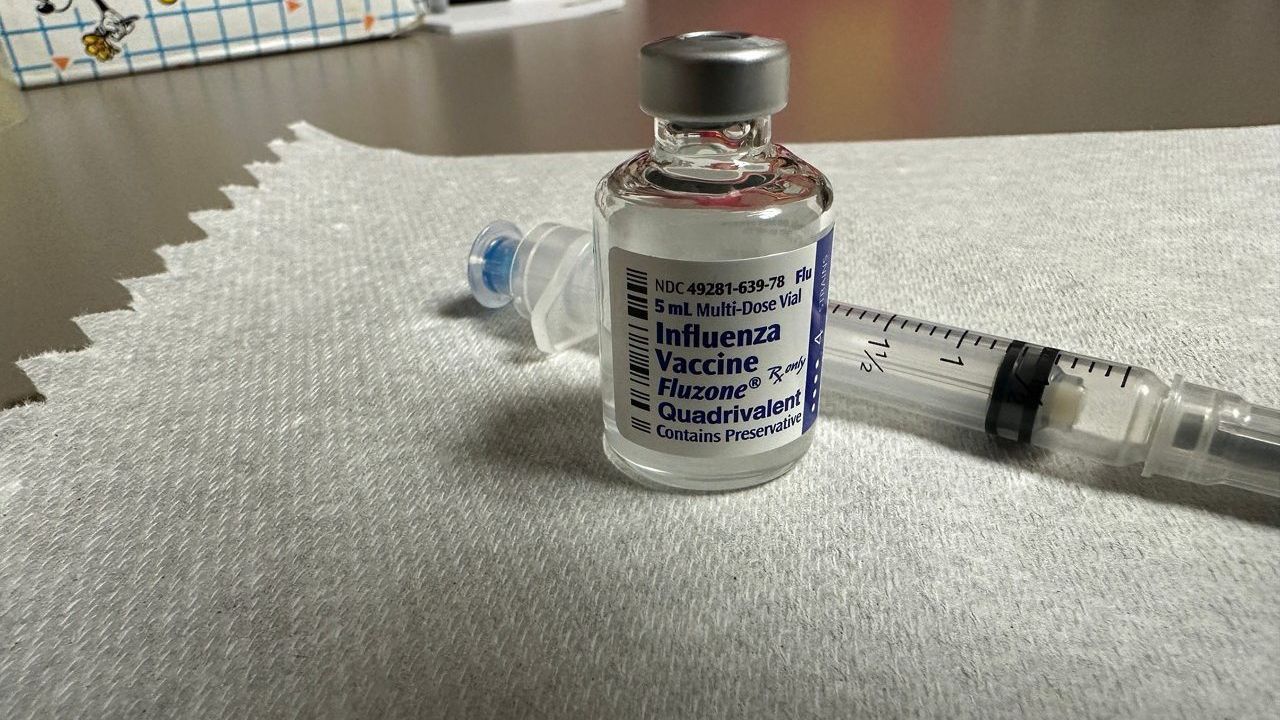GOLDTHWAITE, Texas — For Michael and Lindsay Bellow, there are few joys like parenthood.
“This is Caroline Bellow. She’s 5 years old and growing really fast,” Michael Bellow said. It’s just a constant reminder of how lucky we actually are.”
In 2015, doctors told the Bellows having children was not realistic due to Michael Bellow's reoccurring testicular torsion, a dangerous rotation that cuts off blood flow to the reproductive area.
“It was concerning to hear that from doctors and I said we should really look deeper into it,” Lindsay Bellow said.
The conversation started a fertility journey from Goldthwaite to Austin and reproduction experts working with newer and often unknown procedures.
“Find the right doctor, do the research, because we have been told no and that was not the case. We have a blessing and another on the way,” Michael Bellow said.
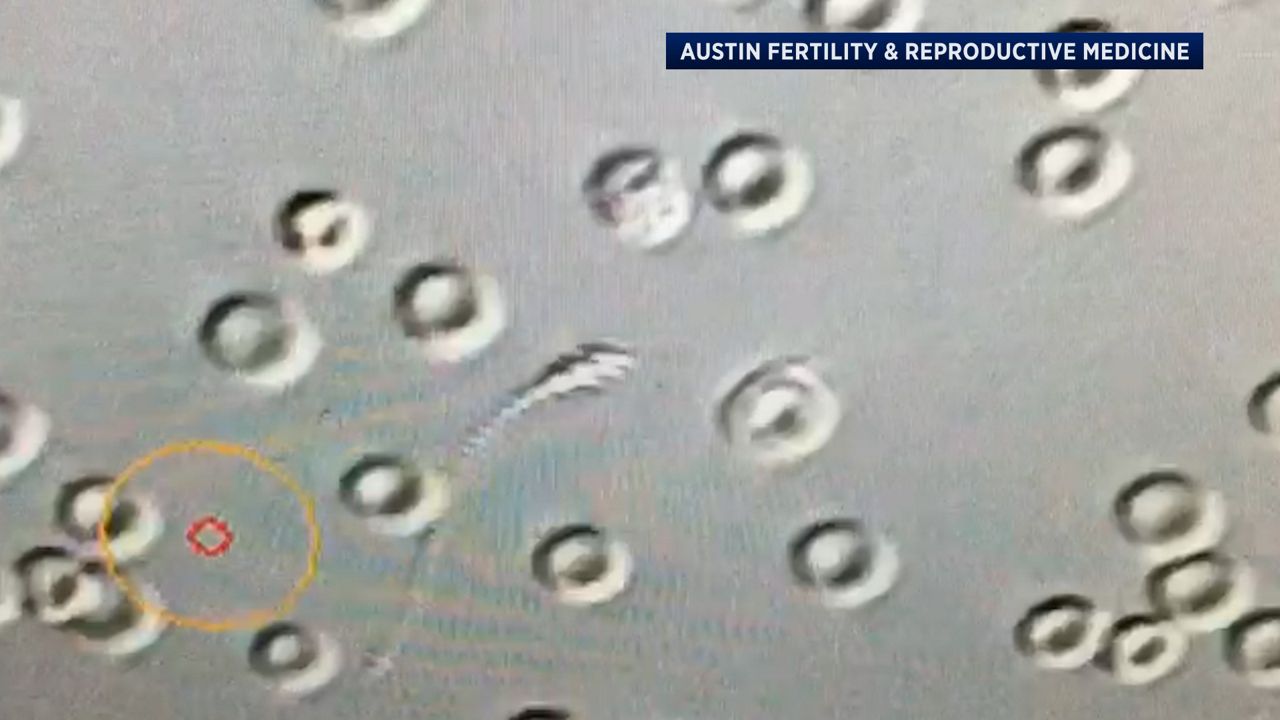
The Bellow family's concerns were answered by Austin-based reproductive urologist Dr. Parvis Kavoussi.
According to the National Institutes of Health, one in 100 men, including Michael Bellow, have sperm counts of zero, and it’s not as rare as some might believe.
“There are many reasons why a man can have a sperm count of zero. Sometimes it’s as simple as a blockage or abstraction,” Dr. Kavoussi said. “Actually, when you do the math, 60% of the time in infertile couples there’s a contributing factor on the male side. There just isn’t enough awareness.”
However, there are solutions to many of these issues. One of them, micro-dissection testicular sperm extraction, which worked for the Bellow family, has about a 70% success rate in finding viable sperm to be used for in-vitro fertilization treatments (IVF).
“Every patient thinks they’re the only one until we talk about the statistics and how frequently we take care of this in our practice,” Dr. Kavoussi said
At the moment, these procedures, while often successful, are not fully accessible to the public. Between cost, which is in the thousands of dollars, and the fact not every story will have a happy ending, the medical practitioner says researchers in the fertility field have room for improvement.
“There is still a great deal of challenges with the need for insurance coverage to improve over time and we’re hopeful for that,” Dr. Kavoussi said. “We need better research, techniques and to improve our technology.”
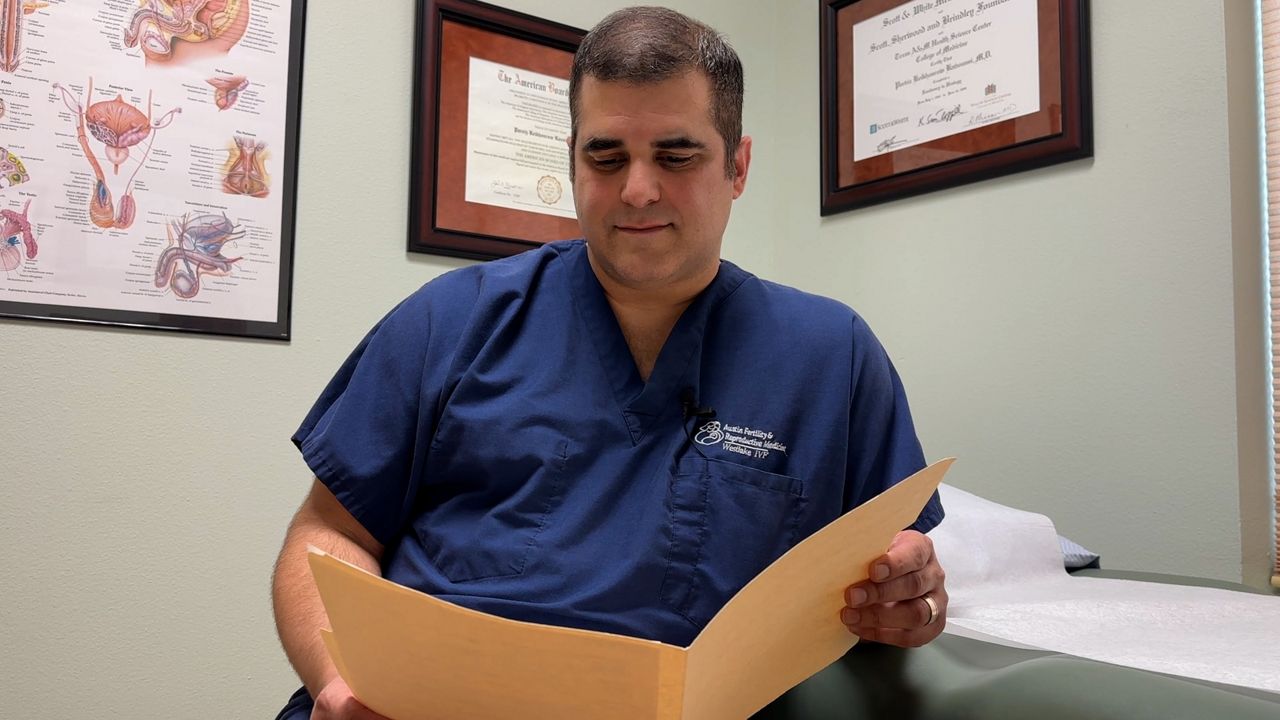
For the Bellows, sharing their story has been important and helps others realize no two fertility stories are the same.
“Being a mom, it’s the best thing in the world, it gives you purpose,” Lindsay Bellow said.
“She thinks for people to have a baby they have to go to the doctor, which isn’t normal, but it’s our normal,” Michael Bellow said.
